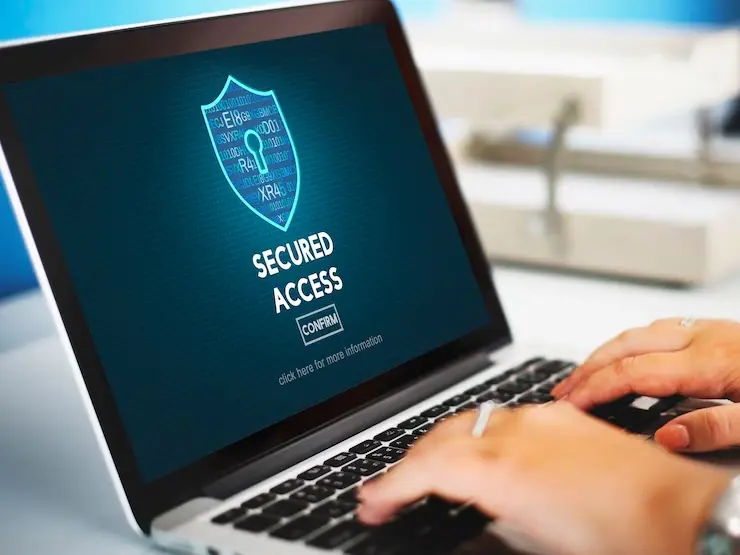In an age where our digital footprints are getting larger by the second, online privacy has become a topic that’s impossible to ignore. As we entrust more of our personal and financial information to online services, it’s crucial to take proactive steps to safeguard our privacy. If you’ve ever wondered how to keep your online presence more private, you’re in the right place. We’ve got all the tips, tricks, and techniques you need.
Why Online Privacy Matters: The Basics
Look, we get it. The internet is a web of endless possibilities. From scrolling through social media to shopping for your favorite pair of sneakers—online convenience is something we can’t live without. But this ease comes at a cost—your privacy.
Ever felt like your devices are spying on you? Search for something on Google, and voila! Ads related to it appear like magic. This isn’t a coincidence; it’s a sign that your online activities are being monitored and possibly stored. Data is the new gold, and everyone—from tech giants to hackers—is after it.
VPNs: The Privacy Shield You Didn’t Know You Needed
You’ve probably heard of VPNs (Virtual Private Networks), but if you’re like most people, you might not be using one. A VPN acts like a mask, hiding your IP address and encrypting your data. This keeps prying eyes at bay and lets you surf the internet with a greater sense of security.
Think of a VPN like a cloak of invisibility from the Harry Potter universe. It’s your digital disguise that keeps you anonymous while you go about your business. So, if you’re serious about enhancing your online privacy, a VPN should be at the top of your list.
Browser Extensions to Boost Privacy
Not all superheroes wear capes. Some come in the form of tiny browser extensions that pack a serious punch. Extensions like HTTPS Everywhere, uBlock Origin, and Privacy Badger work seamlessly to protect your online activities.
What do these extensions do, you ask? Well, they block trackers, force secure connections, and help ensure your data remains locked away from potential invaders. Just head to your browser’s extension store, hit the ‘add’ button, and you’re good to go!
Cookie Control: Limit What You Share
Cookies are like digital breadcrumbs that websites use to track your online activities. While some cookies are beneficial—like remembering your login details—others serve a darker purpose. They monitor your behavior, gathering data to send you targeted ads or worse.
Adjust your browser settings to limit cookies or clear them out altogether periodically. Trust us; this small action can make a huge difference.
Ditching the Default: Why Alternative Search Engines Matter
We all love Google; it’s fast, efficient, and user-friendly. But when it comes to privacy, it leaves much to be desired. Each search query adds to your digital profile, which can be utilized in ways you might not like.
Why not give alternative search engines like DuckDuckGo a try? They don’t track you or store your search history, offering a more private online search experience.
Smart Social Media Habits
We’ve all been there—over-sharing on social media without a second thought. But posting personal information like your location, plans, and even favorite hangout spots can compromise your privacy.
Always think before you share and tweak your privacy settings to control who sees your posts. Because let’s be honest, does the entire world really need to know you’re sipping cocktails in the Bahamas?
Secure Your Wi-Fi: An Overlooked Step
Your home Wi-Fi network is like the front door to your online world, and you wouldn’t leave that unlocked, would you? Using strong, unique passwords and enabling WPA or WPA2 encryption makes it tougher for intruders to gain unauthorized access.
And for heaven’s sake, change that default admin username and password. Many people forget this simple step, leaving their networks vulnerable.
Multi-Factor Authentication: A Simple Yet Effective Measure
Multi-factor authentication (MFA) is like that extra deadbolt on your front door—it’s an added layer of security. By requiring two or more verification methods, MFA ensures that you’re the only person who can access your online accounts.
Sure, it’s a minor inconvenience, but the peace of mind it brings is well worth the extra few seconds.
Keeping Software Updated: The Unsung Hero of Online Security
Software updates may seem annoying, but they’re essential for keeping your devices secure. These updates often include patches for known security vulnerabilities, which could otherwise be exploited by hackers.
So the next time your device prompts you to update, don’t click “remind me later.” Do it right away and keep your online world a safer place.
Explore the rest of our website Tech Glints, intriguing articles await you! Interested in contributing? Simply click the contact button at the top right. Thank you!
